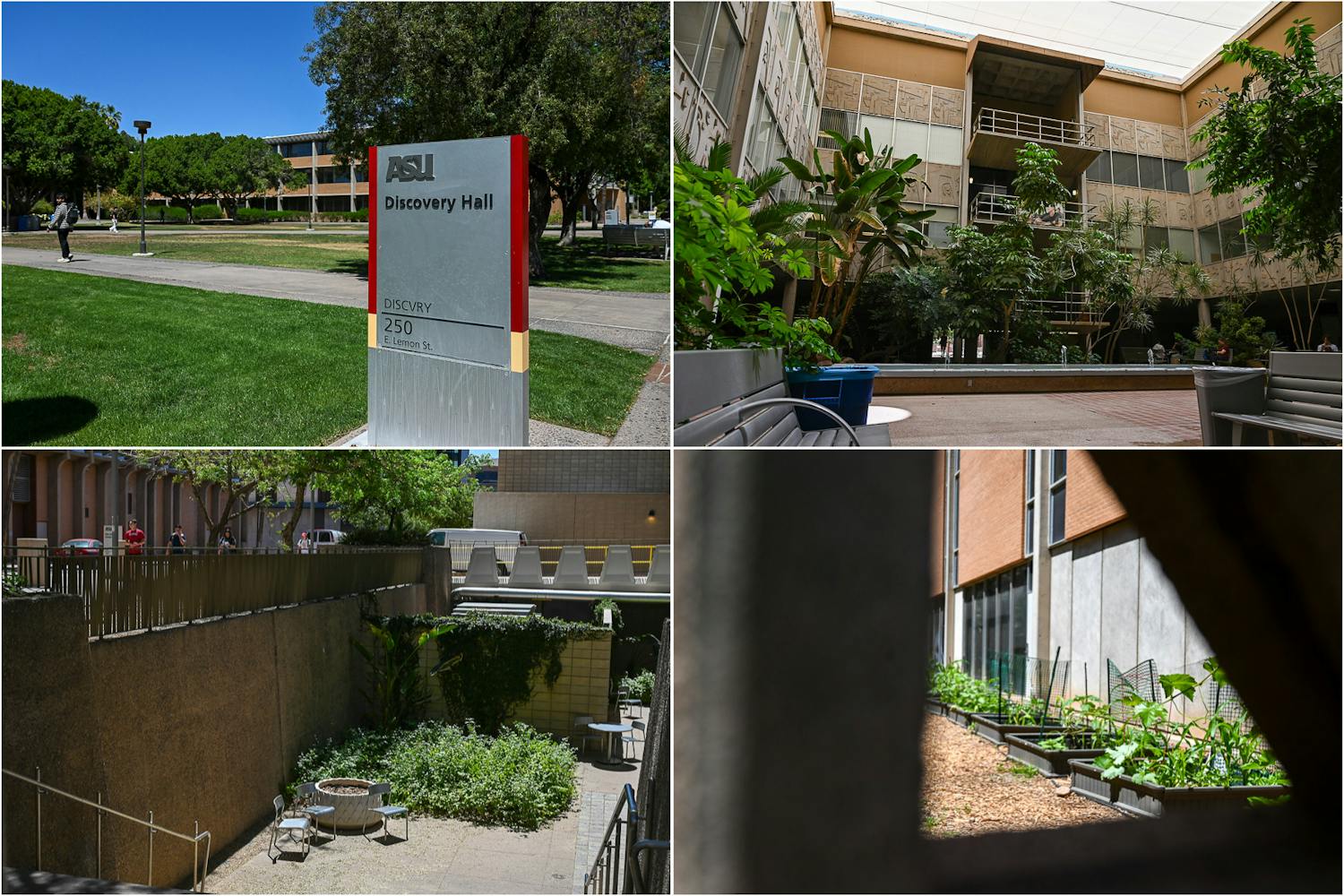The details of Arizona’s reproductive policy are uncertain following the overturn of Roe v. Wade as state lawmakers struggle to choose between two conflicting abortion laws in the books: one passed this year and another passed before Arizona’s statehood.
Since the Supreme Court’s decision in Dobbs v. Jackson Women's Health Organization to overturn Roe v. Wade on June 24, state legislatures were enabled to determine if, when and how people get abortions.
ASU Health Services declined to comment on whether the ruling will impact the resources the University provides. For now, this article provides an overview of where Arizona's abortion policy stands and how students will be able to utilize the state’s available reproductive care.
Abortion policy in Arizona
Gov. Doug Ducey approved a law in March banning abortions past 15 weeks of pregnancy, which is set to be active in September. However, a law passed over 100 years ago that bans abortion almost entirely, and mandates violators face a prison sentence of two to five years, could take precedent before then. On June 29, Arizona Attorney General Mark Brnovich tweeted he would request to get an injunction lifted from the pre-statehood law.
It will likely be up to the Arizona Supreme Court to decide which law will become the state’s predominant abortion policy. But Valerie Hoekstra, an associate professor who specializes in constitutional law at the School of Politics and Global Studies, said it would make more sense for the 15-week ban to prevail because it was signed into law most recently.
READ MORE: Political student clubs resist, rejoice anti-abortion law
However, a clause in the new 15-week ban states the law will not repeal the pre-statehood law or any other state law regulating abortion. According to Jen Piatt, a research scholar specializing in public health law for the Sandra Day O’Connor College of Law, this clause may make state litigation more complicated.
“They're attempting to build an argument against implied repeal by saying 'no, here is the actual will of the Legislature. The will of the Legislature is that this pre-statehood law is not repealed,'” Piatt said. “That gives courts a little bit of the legislative intent when they're trying to assess whether a law has been repealed by implication or not.”
Mary Melcher, a historian specializing in Arizona’s reproductive health policy who received her Ph.D. from ASU, said the pre-statehood law is not only outdated but would risk the lives of Arizonans seeking abortions, regardless of whether or not they could travel to another state.
“Women were dying from botched abortions here and all over the country. It was the highest cause of maternal death related to pregnancy,” Melcher said. “That's a scary thing, that's where we're going back to.”
As the debate continues over which policy will take precedence, all abortion procedures from Arizona’s Planned Parenthood clinics have been canceled, and eight of the state’s nine licensed abortion providers have stopped providing abortions after the Supreme Court decision was released. However, Arizonans can continue to get other reproductive care, according to a statement from, Brittany Fonteno, Planned Parenthood Arizona’s president and CEO.
“Everyone deserves the legal right and ability to access abortion, regardless of where they live, and we are hopeful that we will soon be able to block this law in court,” Fonteno wrote. “But Planned Parenthood’s doors remain open to provide other essential sexual and reproductive health care services. We stand with you. Now, and always.”
The future of abortion laws in Arizona
Piatt added that state elections will play a significant role in the future of Arizona’s reproductive policies. Brnovich, who is advocating for the enaction of the pre-statehood abortion ban as attorney general, will be in Arizona’s Republican primary for a position in the U.S. Senate. The Arizona Governor will also be on the ballot this fall.
“It's important to be as educated as possible on the platform of who you may support with your vote,” Piatt said. “It's also important to just be educated in terms of what kinds of potential policies and candidates may be percolating in the state.”
In addition to candidates who may support abortion legalization, Arizona’s primary ballot may include a state constitutional amendment that would give Arizonans the right to choose reproductive care like abortions. A petition by Arizonans for Reproductive Freedom to include protections for reproductive rights got over 175,000 signatures, short of the about 356,000 signatures required to get the amendment on the ballot.
In order to ensure reproductive freedoms will be protected by state law, Hoekstra said voters will need to mobilize.
“People can support organizations like Planned Parenthood, people can contact their state legislative representatives, participate in demonstrations, vote in elections,” Hoekstra said. “Maybe people might now start to recognize the importance of the federal judiciary and how it's the President and the Senate that shape the outcome of these important policies.”
No matter which law the state legislature chooses, Melcher said it will not be the final verdict on a person’s ability to get abortion care, whether Arizonans challenge the state’s reproductive health policy in court or use more creative methods.
“It's not set in stone. It's a horrible step backward, but that doesn't mean that it's going to be forever.”
Correction: Due to a source error, a previous version of this story misstated the number of signatures the Arizonans for Reproductive Freedom petition received. The story has been updated to correct the error.
Reach the reporter at awaiss@asu.edu and @WaissAlexis on Twitter.
Like The State Press on Facebook and follow @statepress on Twitter.

Alexis Waiss is an assignment editor and senior reporter, covering breaking news and writing long-form stories. Alexis worked on SP's politics desk for a year, where she reported on the Legislature, higher education policy, student government, the city of Tempe and stories highlighting social justice. She previously worked as a fellow for the Asian American Journalist Association's VOICES program.




